Principal Supervisor(s): Dr. KIANG Kai Ming
Co-Supervisor(s): Dr. CHENG Wai Pang Damian, Dr. CHEUNG Hang Cheong Derek, Dr. Klaus COLANERO, Dr. NG Ka Leung Andy, Dr. HO Wai Ming, Dr. LO Chun Yeung Edwin, Dr. YEUNG Yang
The Input-Environment-Outcome (IEO) research aims to evaluate the effectiveness of the General Education Foundation Programme (GEFP) and the development of its students, inspired by Alexander Astin’s IEO model of the talent development framework. This framework emphasizes to conduct evaluation not only at the term end (Outcome), but also to evaluate against students’ initial status (Input) and what they have experienced during the education process (Environment). The research is conducted via both quantitative and qualitative means, including, but not limited to, Entry-Exit surveys, focus groups and students’ high school and university academic performance both within and outside the GEFP. Throughout the years, we have focused more on evaluating change in students’ attitude, values, self-concept, aspirations, behaviour, and also their self-efficacy on key objectives of the GEFP. We believe this to be an important, yet under-discussed, aspect of programme evaluation. The IEO research also aims to accumulate a long-term and continuous set of data as an effort to contribute to pedagogical research on the theoretical and practical levels within and beyond GEFP.
For more details, please refer to the following publications:
- Kiang, Kai Ming, Klaus Colanero. A Classics Reading Approach to Nurture Epistemic Insight in a Multidisciplinary and Higher Education Context, Science Education in the 21st Century: Re-searching Issues that Matter from Different Lenses, pp. 51-65, Singapore: Springer, 2020.
https://doi.org/10.1007/978-981-15-5155-0_4
- Leung, Cheuk-Hang, Hin Yan Chan. Teaching classics as moral and civic education: The impact of core curriculum at The Chinese university of Hong Kong, Asian Education and Development Studies, 2019, Vol. 8 No. 2, pp. 217-232.
https://doi.org/10.1108/AEDS-03-2017-0023
- Kiang, Kai Ming, Ng Ka-Leung Andy and Cheung Hang-Cheong Derek. Nurturing Scientific Literacy for All Undergraduates via Science Classics, Proceedings of International Science Education Conference 2018, Singapore, pp 102-121.
- Cheung, Derek Hang-Cheong Derek, Andy Ka-Leung Ng, Kai Ming Kiang & Henry Hin-Yan Chan. Creating a community of inquiry in the science classroom: an effective pedagogy for teaching diverse students?, Journal of Further and Higher Education, 2018, 44:1, 1-13.
https://doi.org/10.1080/0309877X.2018.1491959
- Chan Hin-Yan, Chun-Yeung Lo, Andy Ka-Leung Ng, Derek Hang-Cheong Cheung, Kai-Ming Kiang. “Relation Between Interactive Learning and Prior Knowledge: Insights from a General Education Program of Science and Humanities”, Journal of General Education, vol.66, no.3-4, pp. 136-165, Penn State University Press, 2017.
https://muse.jhu.edu/article/728318
- Ng, Andy Ka-Leung, Kai Ming Kiang and Derek Hang-Cheong Cheung, Assessing Students’ Attainment in Learning Outcomes: A Comparison of Course-End Evaluation and Entry-Exit Surveys, World Journal of Education, 2016, 6(3).
https://doi.org/10.5430/wje.v6n3p56
- Kiang, Kai Ming, Andy Ka-Leung Ng, and Derek Hang-Cheong Cheung. Teaching Science to Non-Science Students with Science Classics, American Journal of Educational Research. 2015, 3(10), 1291-1297.

